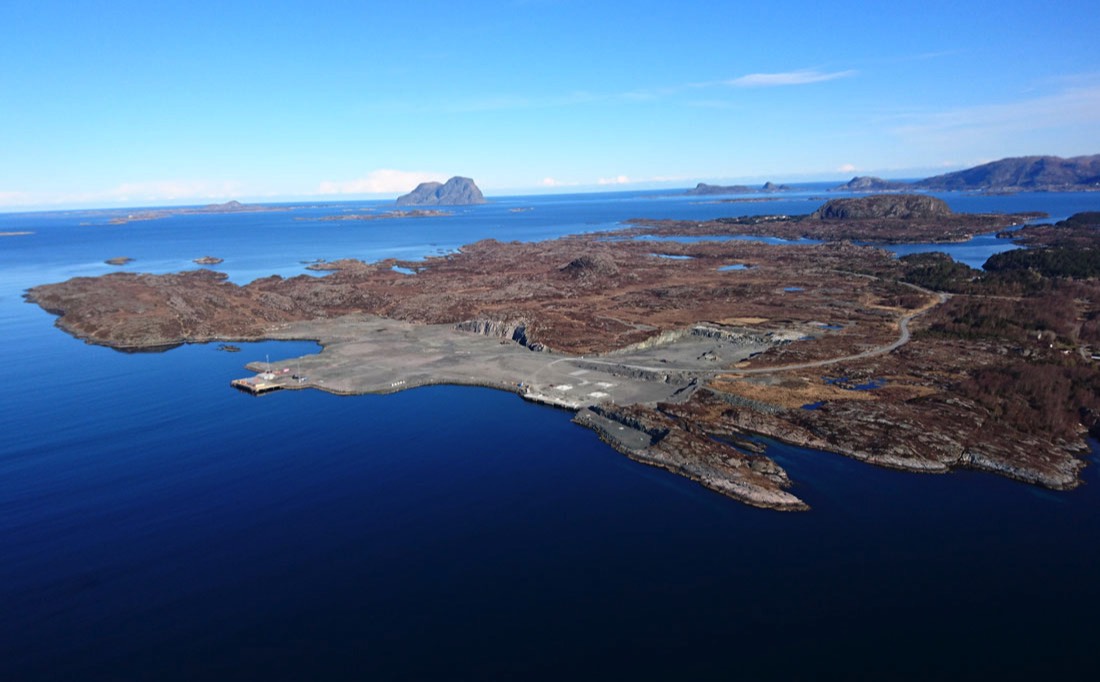Blastr has selected Lutelandet industrial area on the west coast of Norway, as a potential location to be developed for the company’s pellet plant for converting iron ore pellet feed into direct reduction pellets (DR pellets). The LOI includes an area sublease agreement between Blastr and Lutelandet Offshore Site & Drydock (LLOF), and cooperation between Blastr and Htwo-Fuel to secure grid and power capacity. The plant will employ around 120 people and generate a substantial number of indirect jobs and economic activity in the surrounding area.
The pellet plant is a key part of Blastr’s integrated green steel value chain which has the potential to deliver more than 90% reduction of Scope 1-3 C0₂ emissions compared to conventional steelmaking. Blastr’s integrated value chain currently being developed will enable a unique, profitable business model with a record low CO₂ footprint for industrial-scale steel production and a platform for further growth.
Lutelandet is a highly attractive site for the production of feedstock to our steel plant with industrial infrastructure already in place, access to a North Sea deepwater port, and clean renewable energy from hydropower and nearby wind farms,” commented Hans Fredrik Wittusen, the CEO of Blastr Green Steel. “We look forward to cooperating with our site partners and the surrounding community to further develop the Lutelandet option in order to accelerate the implementation of our pellet plant and optimize our integrated value chain for ultra-low CO₂ steel products.”
“Blastr is a great fit for Lutelandet and will accelerate the development and cooperation between new green industries at our site. A pellet plant of this type and scale brings new competence, jobs, and significant investments to Lutelandet and the region. It also fosters synergy potential for collaboration among different industrial initiatives co-located in the area,” commented Tor Gjertsen, Chairman of LLOF Site & Drydock.
Blastr aims to produce 6 million tonnes (Mt) annually of high-quality DR pellets as feedstock for its ultra-low CO2 steel plant planned in Inkoo, Finland. Approximately half of the pellet volumes will go “to its Inkoo steel plant, while the rest will be sold to Cargill Metals for distribution to the growing world market for DR pellets.
In July, Blastr signed an LOI with Redcar Bulk Terminal (RBT) at Teesside, United Kingdom, as another potential location for the pellet plant. By considering two sites in parallel, Blastr maintains optionality during the development process to optimize the value chain.
Blastr will work closely with its partners and relevant stakeholders at both Lutelandet and Teesside before making a final site selection, targeted by the end of 2023, and immediately followed by detailed engineering and permitting processes. The final investment decision for the pellet plant is expected in 2025, with estimated investments of over EUR 1 billion, subject to relevant permits and agreements. The target for production to start is in 2027.

